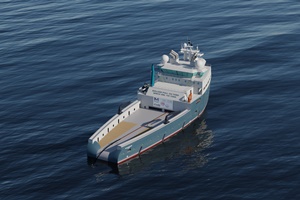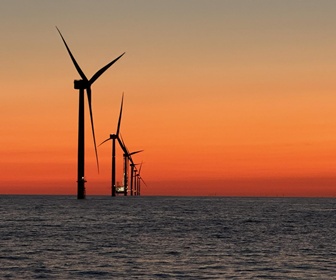 A consortium led by Morek Engineering has completed the first feasibility phase of an innovative vessel concept designed for the floating offshore wind (FLOW) market. Based in South West England, the group includes Solis Marine Engineering, Tope Ocean, First Marine Solutions and Celtic Sea Power.
A consortium led by Morek Engineering has completed the first feasibility phase of an innovative vessel concept designed for the floating offshore wind (FLOW) market. Based in South West England, the group includes Solis Marine Engineering, Tope Ocean, First Marine Solutions and Celtic Sea Power.
The proposed Future FLOW Installation Vessel (FFIV) aims to address a key stage of the floating wind installation process that has yet to be optimised. The design includes features such as low-carbon fuel capability, a hydrodynamically efficient hull and enhanced mooring capacity.
The vessel is intended to install mooring lines onto pre-installed anchors—whether drag embedment anchors requiring high bollard pull vessels, suction piles or driven piles that rely on large subsea cranes. The FFIV will enable the quick connection of floating foundations that have been towed to site.
To meet the specific needs of large-scale floating projects, the vessel includes a below-deck cable tank for storing synthetic mooring ropes and large chain lockers to hold the extensive lengths of chain expected in the sector.
The project is part of the Clean Maritime Demonstration Competition Round 4 (CMDC4), funded by the UK Department for Transport and delivered by Innovate UK. CMDC4 is linked to the UK Shipping Office for Reducing Emissions (UK SHORE), a £206 million initiative supporting the decarbonisation of the domestic maritime sector.
The consortium will now progress to the next design stage, focusing on equipment for handling synthetic rope, weather limitations, and the regulatory and technical challenges associated with methanol propulsion. The aim is to secure Approval in Principle from a classification society by December 2025.
image credit: Morek Engineering








